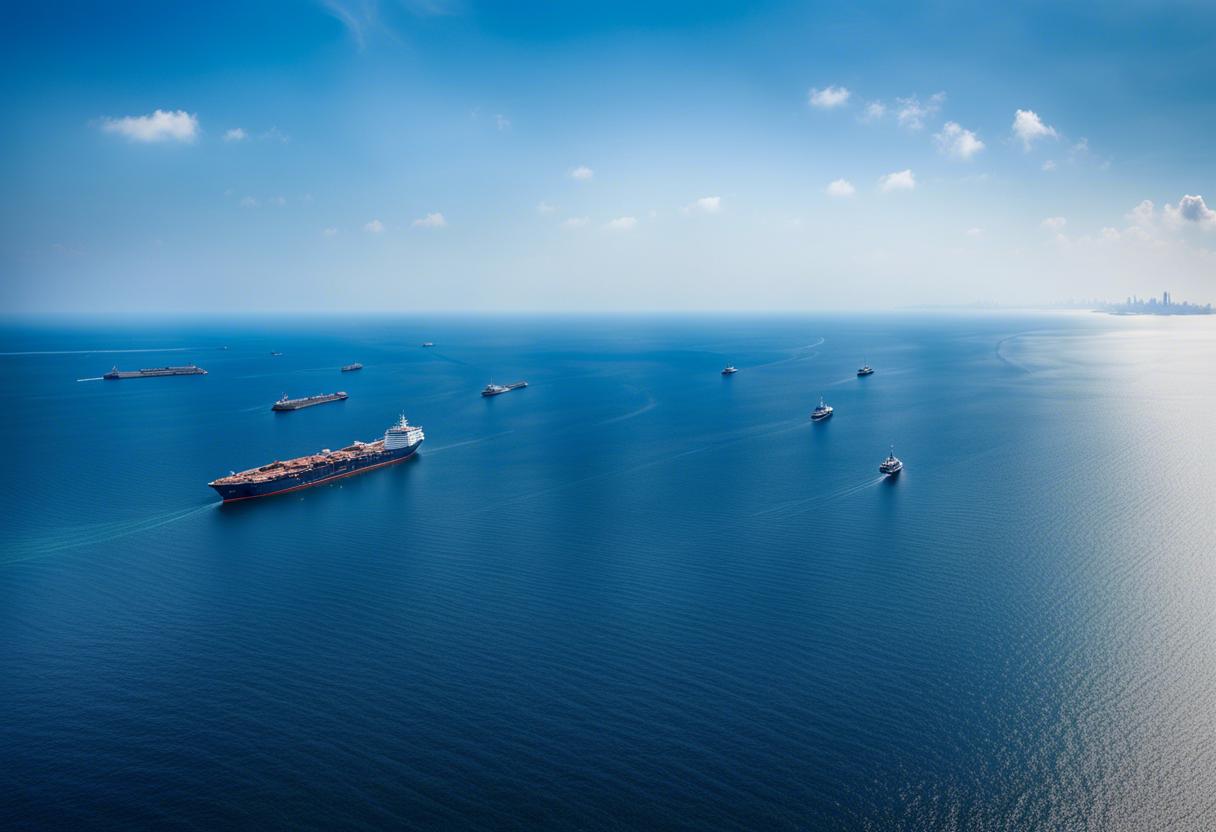On Tuesday, a collision between Chinese and Philippine coast guard ships escalated the ongoing disagreement over sea rights between the two nations in the disputed South China Sea territory. The Philippines stated that their vessels were targeted by powerful water cannons from China’s coast guard, resulting in damage to one of their ships.
The event took place near the Scarborough Shoal, a contested area within many reefs, minor islands and other marine spaces in the South China Sea that are claimed by Beijing. However, in 2016, an arbitration court operating internationally declared these claims as legally baseless, a judgement that Chin has refused to accept.
On Tuesday, China reported that it had forced two Philippine ships to leave as they approached the controversial shoal. Contrarily, the Philippine coast guard stated that they held their position even after suffering damage from Chinese water cannons.
According to Jay Tarriela, spokesperson of the Philippine coast guard, the damage inflicted bears testimony to the aggressive water pressure applied by the China coast guard in their harassment of Philippine vessels. Despite this, he confirmed that they are undeterred and will continue to conduct their lawful duties, which include supporting Filipino fishermen and guaranteeing their safety.
China’s foreign ministry retaliated stating that the Philippine ships hadtransgressed into the waters around Scarborough Shoal without China’s consent, leading to their expulsion. Lin Jian, a spokesperson speaking during a routine press conference in Beijing, strongly urged the Philippines to refrain from any more provocative infringements, and not to test China’s steadfast determination to uphold its sovereignty. Lin also insisted that the Chinese coast guard acted lawfully in their unwavering expulsion of the Philippine vessels.
This incident transpired amidst a joint military exercise involving the US and the Philippines, partially occurring in the South China Sea. The US had recently reaffirmed to Ferdinand Marcos Jr., President of the Philippines, that if needed, the US was prepared to intervene as per their Mutual Defence Treaty. As the Chinese coast guard has been repeatedly using water cannons, anxieties are rising that if a Filipino crew member were to die during such an altercation, it could result in US naval involvement. Since Marcos took over from Rodrigo Duterte, a favoured ally of Beijing but a disliked figure in the West, Manila has noticeably increased both military and diplomatic connections with Washington from 2022 onwards.
In the South China Sea, a significant trade conduit, China asserts dominant ownership, a move contested by nations such as Vietnam, Malaysia, Indonesia, and Brunei. The dispute centres on the popularly referred “nine-dash line” and its surrounding waters, whereby China claims historical rights. However, the Permanent Court of Arbitration disputed this claim in 2016, stating there was no legal foundation for such rights to resources.
The court further commented on China’s possessions in the Spratly Islands, describing them as legally considered ‘rocks’; hence, these wouldn’t establish an exclusive 200-nautical mile economic zone or a continental shelf. The court also found China to have hampered traditional Philippine fishing activities in the Scarborough Shoal region.
Regarding the arbitration process, China declined to participate, contending the panel lacked the authority to resolve the controversy, and Beijing has since disregarded the court’s judgement. There is potential for a second arbitration appeal sought by Manila, which could prompt other countries contesting Beijing’s ownership assertions over the South China Sea to adapt a similar approach, a prospect rattling Beijing.

